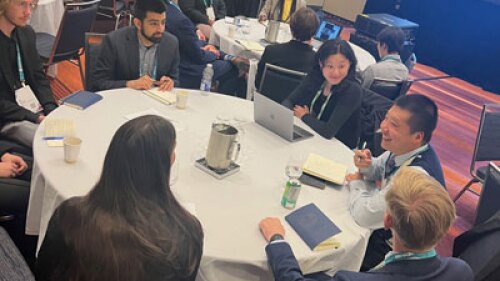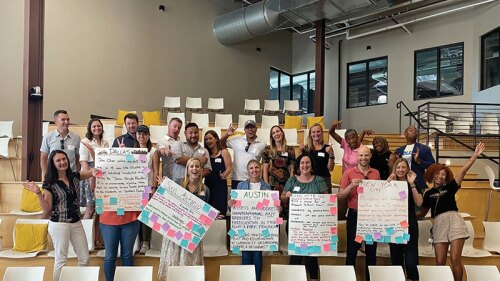As chief executive officer and president of the Ratkovich Company, ULI Foundation Governor Wayne Ratkovich has made an indelible mark on his home city of Los Angeles through ground-breaking projects that enliven historic properties with new and dynamic uses. During his 40-plus-year career, Ratkovich has given back to ULI many times over through his service as a global trustee, a former Foundation board member, and a frequent chairman of Advisory Services panels. ULI Connect spoke with Ratkovich about his experiences.
You’ve served on nearly a dozen Advisory Services panels, chairing all but a few of them. Can you describe a few of the highlights or common themes? Underlying themes have been urban revitalization and building on existing urban infrastructure. I would say every single panel has been a remarkable, rewarding experience. One I remember most clearly is a panel I chaired on the Navy Pier in Chicago in 1989. The pier was sinking into Lake Michigan. While many people said, ‘That’s just fine,’ others were interested in saving this iconic cultural asset. Our panel put together a solution to save the pier and did a remarkable job in coming up with a plan with sound engineering behind it.
What was noteworthy was that we delivered our recommendations at a time when the political leadership in Chicago was in transition. [Mayor Harold Washington passed away in office in 1987 and Eugene Sawyer, former city council president, completed his term.] After Mayor Richard M. Daley took office in 1989, his first reaction was to distance himself from ULI’s work. We had some fence-mending to do. Thanks to members of the panel who had close relationships with Daley, he and the Illinois governor signed off on our recommendations, and the Navy Pier was rebuilt based on several of them.
At this point, panels have become a fine-tuned process. It starts out as well-organized chaos when you arrive, but everybody is amazed at how much work gets done by the end of the week. An esprit de corps emerges. - Wayne Ratkovich
How have you defined the role of panel chairman and what makes this position unique? The chairman sets the tone for the panel and ensures that everybody buys into the its mission. He or she also ensures that we address the sponsor’s request, although we are not necessarily bound to produce a particular result. There are diplomatic duties to undertake so that consensus on a particular issue is reached. The chairman also serves as the spokesman for the panel’s findings before the public and media. At this point, panels have become a fine-tuned process. It starts out as well-organized chaos when you arrive, but everybody is amazed at how much work gets done by the end of the week. An esprit de corps emerges.
Has serving on panels influenced your thinking about real estate or urban development? There is no question that the panels are a learning experience. There are startling tidbits of history woven into the built environment that you pick up along the way.
During a panel in 2014 in which Harris County asked for guidance on repurposing the Houston Astrodome—an aging piece of urban infrastructure--we interviewed an African American minister who shared a story on the facility’s role in Houston’s civil rights history. In the early 1960s, Major League Baseball wanted expand into Houston, a segregated city at the time. The question of how you could play baseball in the summertime in Houston led to the Astrodome—the first enclosed stadium in the country—being built in the first place. Black players like Willie Mays and others refused to play in Houston and stay in separate hotels. So public officials, church leaders, and others worked to desegregate hotels and housing so the Astrodome project could move forward. It was an example of sports infrastructure playing a role in desegregation in a quiet and peaceful way.




